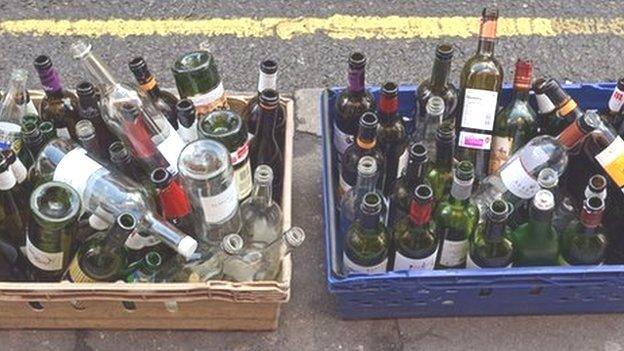Recycling waste prices hit Welsh council budgets
- Published
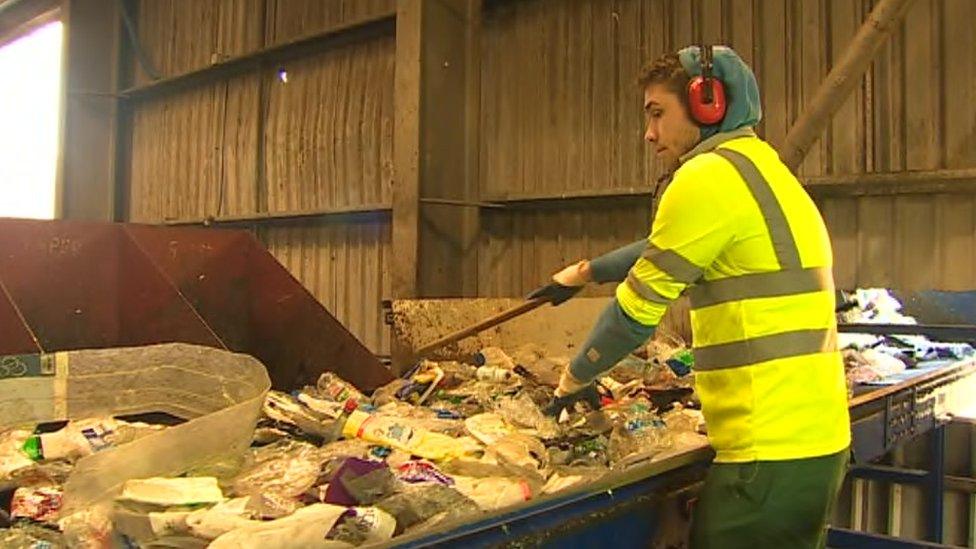
A collapse in the global price paid for recycled waste has cost Welsh councils more than £1m in lost income.
Six authorities have told BBC Wales a meltdown in waste markets has hit their budgets.
Pembrokeshire council has seen the price it gets for steel drop by 88% over the year - while Flintshire has seen the price for plastics halved.
Experts say a slump in oil prices, cheap steel imports, and China's economic slowdown are to blame.
"We try to play the markets as best we can," Harvey Mitchell, the waste services manager for Flintshire, said.
"It makes it difficult when we do have a drop in issues we can't control, such as the global price of oil, or when larger countries flood the European market with steel."
Flintshire has been celebrating a record year for recycling household waste - up to 58% of everything thrown away now ends up at its waste recover facility in Buckley.
"But while we've seen an increase in the amount of material we've collected, we've actually seen a drop in the income because of the market prices," Mr Mitchell said.
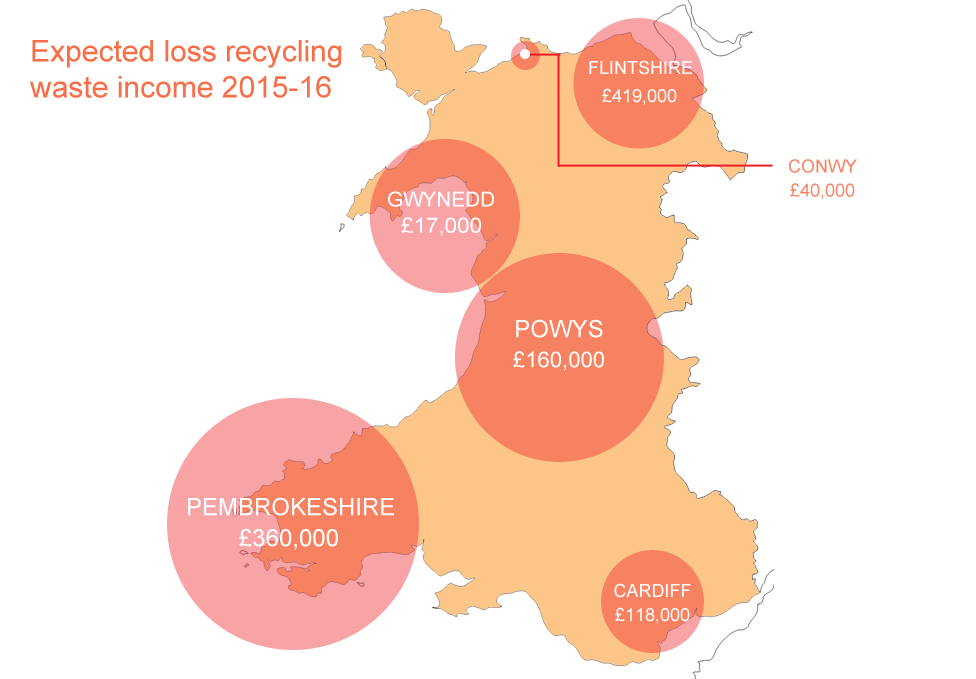
Recycled waste netted the council £537,000 in revenue in 2015/16, but this represented a drop of 45% in the expected income - more than £400,000 in lost cash.
The pattern has been repeated in Pembrokeshire, where £360,000 has been wiped off the council's expected income, while four other councils saw a combined drop of £335,000.
"This is an issue which is impacting upon Wales as a whole, not just Pembrokeshire," a council official there said.
"Fortunately quotes for the coming months are starting to look more positive with prices starting to increase."
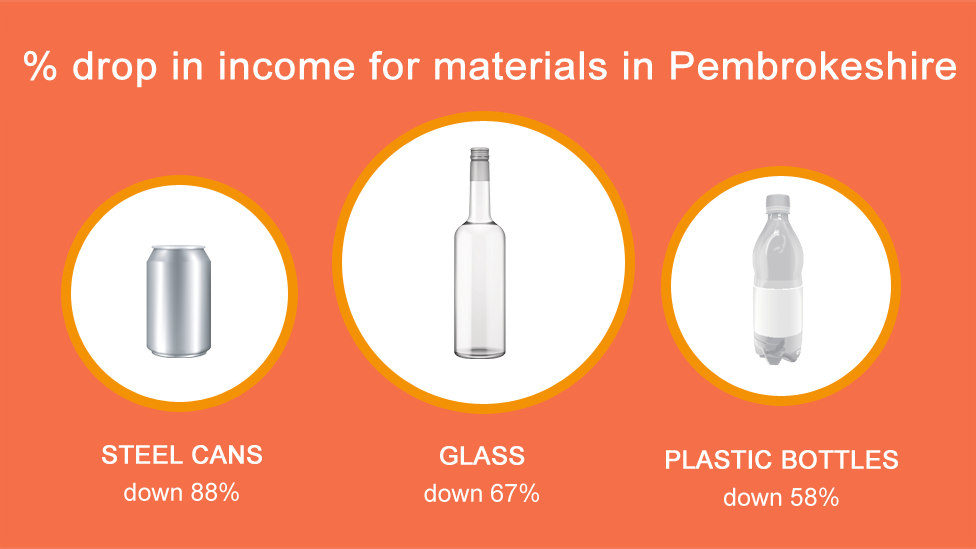
The impact on most of the other Welsh councils which responded to BBC Wales has been minimal, as they said are tied into long term contracts dealing with their recycling services.
But one academic expert said authorities and the public in Wales will need to refocus as they face ever increasing targets on recycling.
By 2025 Welsh authorities are being asked to recycle 70% of waste - by 2050, it should be 100%.
"Waste prevention is what this is all about," Rebecca Colley-Jones, from Bangor University's Sustainability Lab, said.
"It's about buying smartly, being able to think about what you do with it so it can be reused, because reuse is a form of waste prevention.
"Together we can provide solutions for the future."
- Published27 July 2015
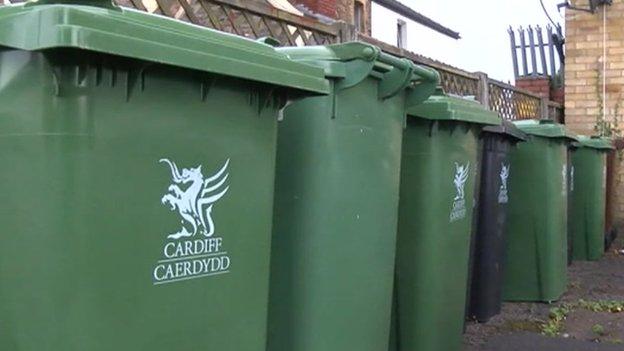
- Published21 January 2016
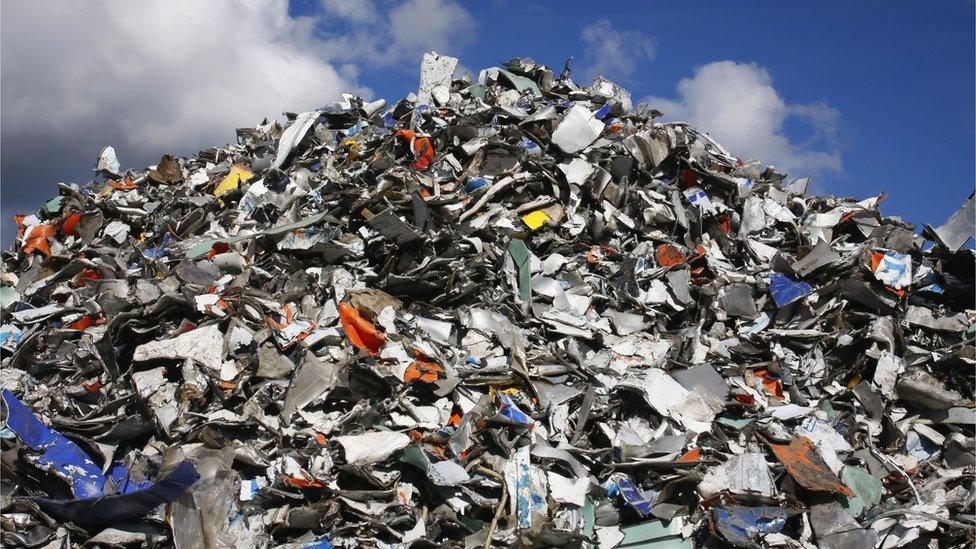
- Published20 August 2015
